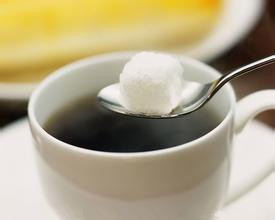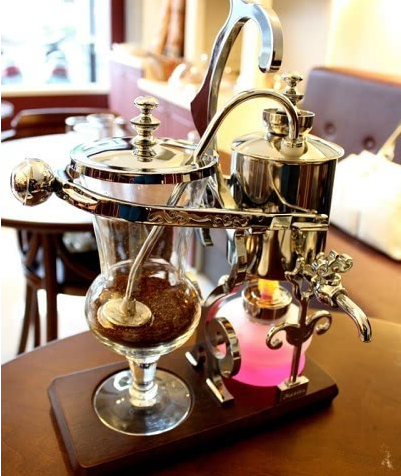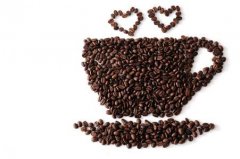Common sense of "making" coffee in cafes in Vienna

"when you are in a bad mood, go to the cafe! when your girlfriend breaks her appointment, go to the cafe! when you can't make ends meet, go to the cafe! when you are dissatisfied with your current situation, go to the cafe!"
If you have not been to Austria and have not really settled down to soak in the coffee shop in Vienna, I am afraid it is difficult to understand the true connotation of the Poems of the Cafe by the Austrian poet Altenberg.
The Cafe in Vienna
Drinking coffee in Austria has a history of more than 400 years, and it is said that the Turks were the first to bring coffee to Europe. But when it comes to this, some Austrians will say that it was the Viennese who turned coffee into a culture, an art, a life.
The coffee in Vienna is different from that in other places, it is not brewed, let alone brewed, but "beaten". The freshly ground coffee powder is mixed with high-pressure steam, and the milk is also "beaten" under high pressure. The coffee made in this way will have a thick layer of foam, just like beer that has just been poured out, and the foam will last for a long time.
There are many places to drink coffee in Vienna, it is said that there are about 800 places. There are coffee kiosks for standing drinking on street corners, coffee shops for people to get together in residential areas, and cafes all over the city and streets, either magnificent or quiet and elegant. In addition, almost all the bars, breakfast restaurants, fast food restaurants, bakeries, restaurants and hotels in Vienna operate coffee, and many of them have their own characteristics and regular guests.
The cafe is part of the spiritual life of Viennese, and some Viennese even call it the "Viennese three treasures" with music and waltz. This may be an exaggeration, but the Viennese preference for cafes is evident.
Viennese people do not change places easily when they go to cafes, and some people even keep the same time, seat and brand of coffee to go to the cafe. Of course, every time they are well received by waiters who are familiar with their temperament and hobbies. The waiter will not only bring the guests' favorite coffee and soft cakes, but also bring the newspapers and magazines that the guests like to read.
If you enter a traditional coffee shop in Vienna and sit down and simply say "have a cup of coffee", the waiter will be at a loss as there are dozens of kinds of coffee in Vienna. There are "Melange" mixed with a lot of milk, "Fiaker" with brandy, "Brauner" with thick cream foam, "Cappuccino" sprinkled with cocoa powder, and "Espresso" which is bitter but mellow at first.
The place where the writer was born
Vienna Cafe is also famous because it once gave birth to a large number of "Cafe Writers" on a par with the famous Austrian writer Zweig. Zweig left behind many immortal literary works such as the House by the Water, the sin of compassion and the letter from a strange woman, and many of his creative inspirations were drawn from cafes. The Chapel Cafe near the National Opera House in the old city of Vienna was the place he used to visit.
The Cafe Writer in Vienna was famous in the West at the beginning of the last century. At that time, most of these literati were short of money and did not have their own living room and study, so they gathered in cafes all day to discuss literature, make friends and inspire inspiration. Many of their masterpieces were done on the coffee table.
Today, the cafe in Vienna is still an important place for people to obtain and exchange information. Authentic cafes have a large number of newspapers and periodicals for guests to read. It is said that the famous Central Cafe in the old city of Vienna prepares up to 250 newspapers and periodicals from various countries for guests. In the cafe, people can read books, read newspapers and talk about things. There are businessmen who negotiate business, students who review their lessons, old people who get rid of loneliness, and lovers who fall in love.
Important Notice :
前街咖啡 FrontStreet Coffee has moved to new addredd:
FrontStreet Coffee Address: 315,Donghua East Road,GuangZhou
Tel:020 38364473
- Prev

The royal Belgian coffee pot is as delicate as noble handicrafts.
At first, coffee was only popular among the aristocracy and the rich, so drinking coffee itself symbolizes the status of an elite. Even the design of the coffee pot reveals the royal dignity, such as the Belgian coffee pot for the use of the Belgian royal family. The origin of the Belgian pot belongs to a special coffee pot. Today, the ornamental value of the Belgian pot is much greater than its practical value.
- Next

The way of professional ESPRESSO
First of all, I would like to introduce to you the base of all espresso, the essence of espresso. Several major laws of Italian coffee: with 8-9 bar (atmospheric pressure) water pressure, a single cup of 7-8 grams of coffee powder, a double cup of 14-15 grams of coffee powder, 92 degrees of water temperature (the water temperature of the brewing head will exceed 92 degrees when the coffee machine is not in use for more than 10 minutes, so please note that there is no coffee powder for a certain period of time.
Related
- Beginners will see the "Coffee pull flower" guide!
- What is the difference between ice blog purified milk and ordinary milk coffee?
- Why is the Philippines the largest producer of crops in Liberia?
- For coffee extraction, should the fine powder be retained?
- How does extracted espresso fill pressed powder? How much strength does it take to press the powder?
- How to make jasmine cold extract coffee? Is the jasmine + latte good?
- Will this little toy really make the coffee taste better? How does Lily Drip affect coffee extraction?
- Will the action of slapping the filter cup also affect coffee extraction?
- What's the difference between powder-to-water ratio and powder-to-liquid ratio?
- What is the Ethiopian local species? What does it have to do with Heirloom native species?

